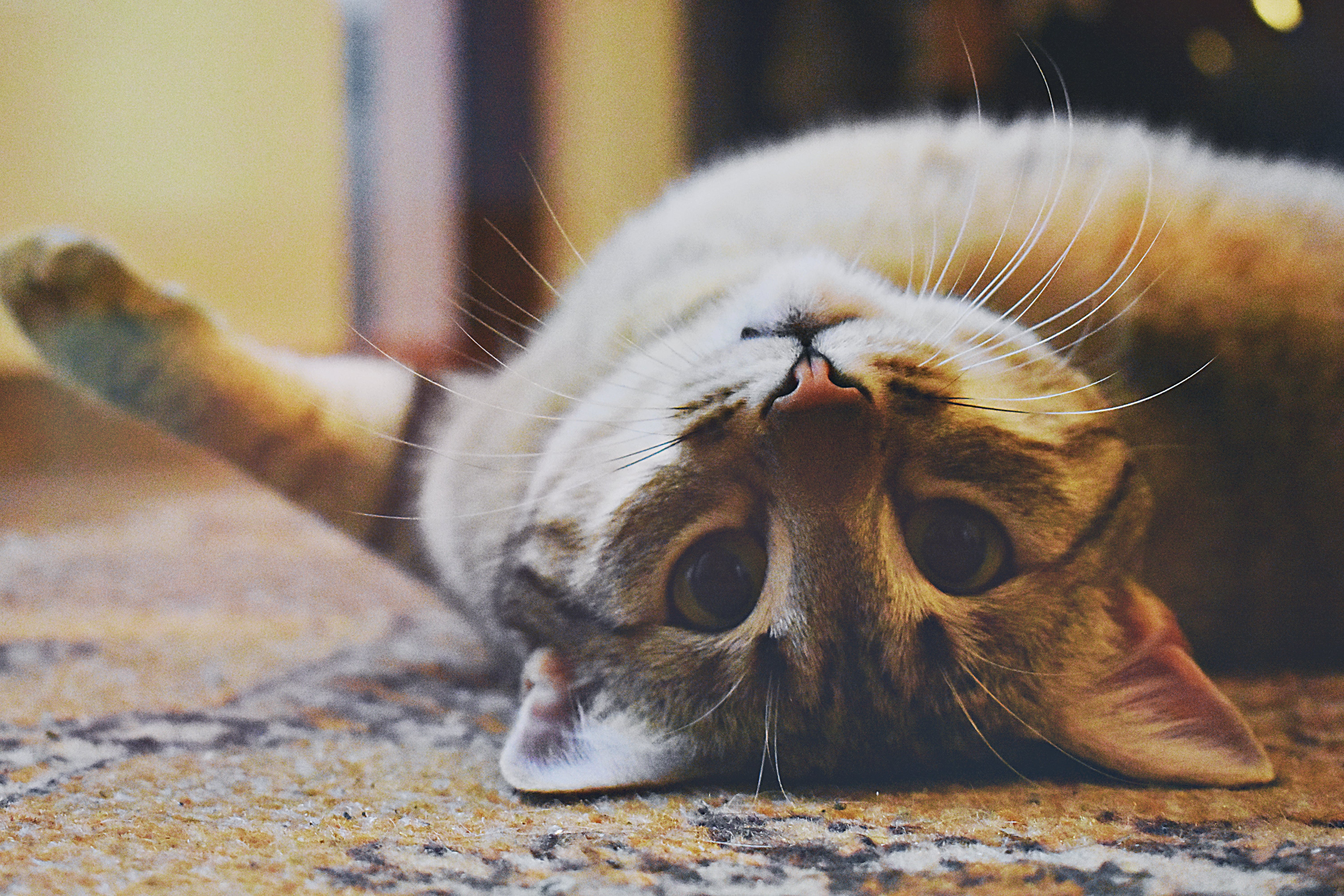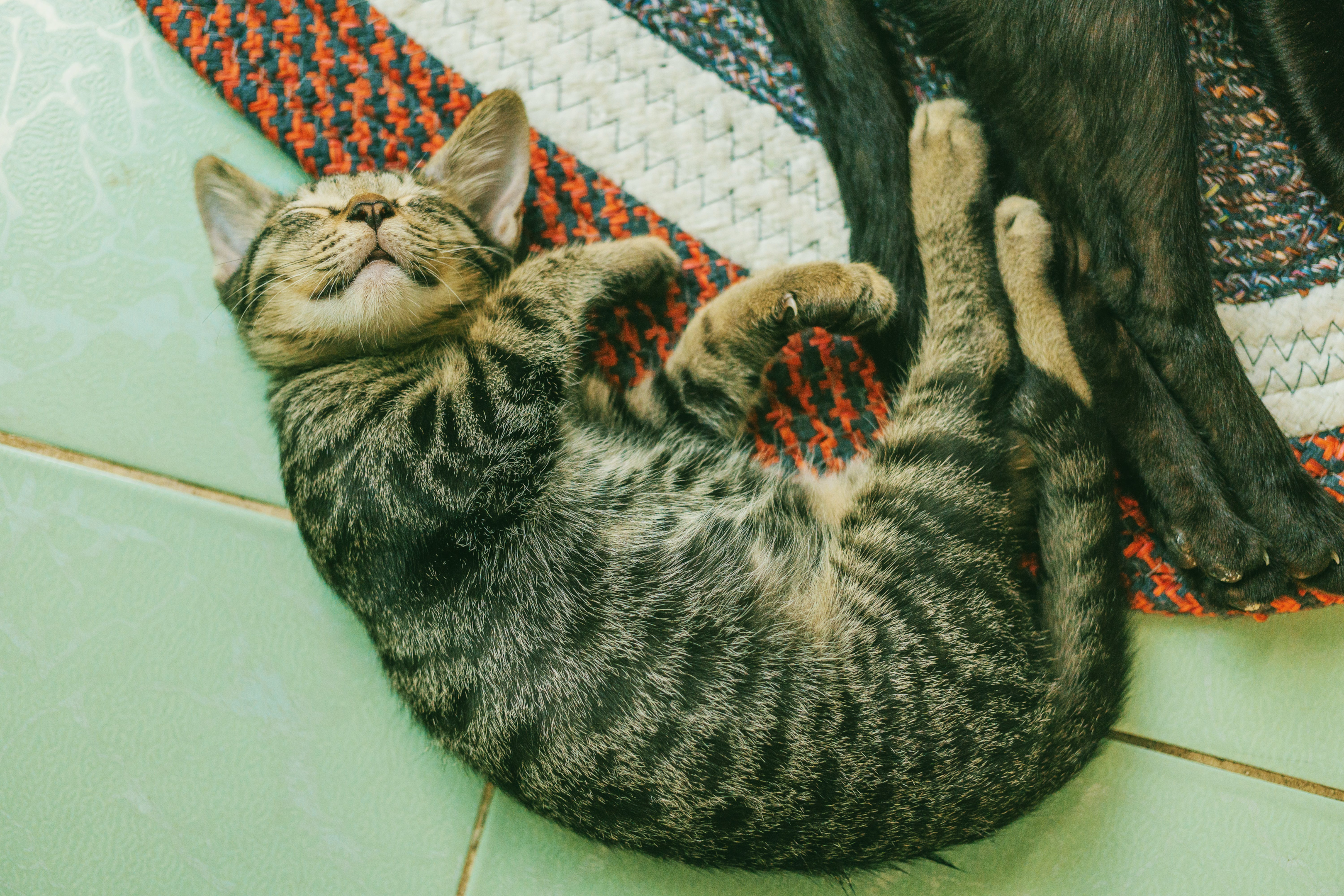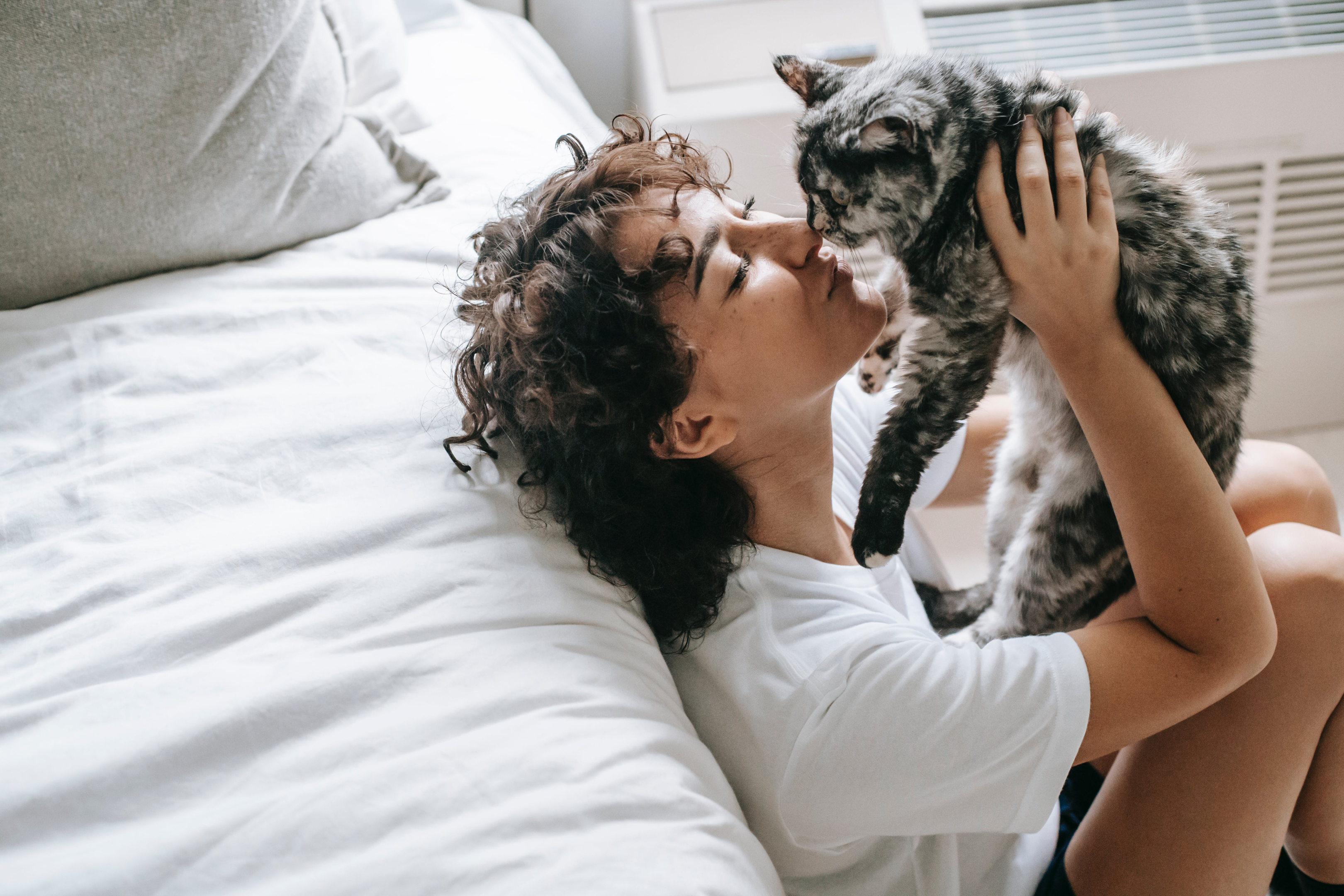My Cat Has A Lump On His Stomach, Is It Stomach Cancer?
Does your cat have a lump on his stomach?
If your pet has some unusual lump on his body that seems to come out of nowhere, there is a chance that it may be a sign of cancer in cats. However, this wellness issue requires an accurate diagnosis to determine your pet's condition.
Should you find an unusual growth in your cat’s abdomen, you’re most likely worried. In this article, we’re going to look at stomach cancer in cats and learn more about the causes, risk factors, symptoms, and treatment options available.
Feline cancer can be dealt with more effectively when caught early
Just to emphasize, cats diagnosed with cancer early on have higher chances of overcoming this health problem. Your cat's specific circumstances will also vary depending on how various factors like age, environment, and heredity, among others.
We're also going to give you a run-through of the possible cancer treatment outcomes as we go along. This is to help you have an idea of how to maintain your cat's quality of life during this serious disease.
Not knowing how to properly deal with cancer in cats using a proactive approach can significantly reduce the possibility of full recovery.
A quick helpful tip for cat owners
You can always look into our complete guide to cat cancer to learn more about different cancers affecting cats. Moreover, it is not uncommon that some types of cancer in cats may require further diagnostic testing to determine the extent and gravity of the disease.
And unlike what a lot of people mistakenly think, exclusively indoor cats can also be susceptible to cancer. This doesn't mean that keeping your cat indoors already makes him non-vulnerable to cancer and tumors, especially those having an impact on the mammary gland and lymph nodes.
Do You Notice a Suspicious Lump on Your Cat's Body?

If we're being honest, it could be an indicator of one of the worst health concerns that your kitty could ever go through: feline cancer. Cancerous cells, like in the case of squamous cell carcinoma, as well as mast cell tumors, can sometimes manifest as lumps and bumps on your precious feline friend.
While cancer can appear on the body of your kitty in many forms, one of the aspects it can manifest is having your cat's stomach as the affected area. However, besides targeting the stomach, this can also put other internal organs at risk like the digestive tract, particularly the small intestines and the mammary glands.
Never Neglect Any Lump on Cat Physique
Besides putting a strain on your cat's condition to a comfortable life, felines affected with cancer can also persistently experience pain. This is the reason why seeking a proper diagnosis from a veterinary oncology team is a must if you notice a strange lump on your cat's body, not just on his stomach.
How Common Is Stomach Cancer in Cats?

First of all, it’s reassuring to know that stomach cancer is rare in cats, and it only makes up less than 1% of diagnosed cases. Any tumor is classified as either malignant (cancerous and can spread) or benign (not cancerous and does not spread). Unfortunately, while stomach cancer is rare, the majority of stomach tumors in cats are malignant and often spread to other areas of the body.
Different types of malignant tumors, such as in the case of mammary tumors, can be found on or around the stomach. In cats, the most common abdominal cancers are lymphomas, leiomyosarcomas, and adenocarcinomas.
Just to point out, squamous cell carcinomas are the most prevalent as regards cancer affecting the oral region in felines. Other common types of cancers and tumors in cats include those distressing the lymph nodes, mast cells, as well as other organs.
These may require different cancer treatments like radiation therapy, chemotherapy, surgical treatment, and other targeted therapies or a combination of these treatment options.
However, comprehensive diagnostic testing is required—usually by a veterinary oncology team—to dig deep into your pet's medical history (such as having an abdominal ultrasound and exploring the surrounding tissue) and plan out possible treatment options.
Is stomach cancer or tumor in cats painful? Yes, your cat may experience gastrointestinal symptoms that can cause pain or discomfort. After your feline is diagnosed with cancer, the vet will also prescribe medications like those used in managing pain and other general symptoms. This is also common with palliative care.
What Causes Stomach Cancer in Cats?

Despite the strides in modern veterinary medicine, the exact cause of stomach cancer in cats is still unknown. However, the following are the common "risk factors" that may increase the susceptibility of your cat to this disease:
Age
Older felines tend to develop cancer of the stomach due to their weakened immune response. This is the biggest reason why boosting overall immune system health is a must in older cats.
Gender
Additionally, male cats are more vulnerable to cancer of the stomach in cats. They have the highest number as regards those who are initially diagnosed with this disease and will show the clinical symptoms more easily. Cats spayed have a lesser risk of cancer, too.
Breed
Yes, there are cat breeds that are prone to cancer. These include Bengals, Persians, and Siamese cats. Some environmental factors may also be linked to this wellness problem like exposure to secondhand smoke.
Does the Feline Leukemia Virus Cause Stomach Cancer in Cats?
The FIV is commonly linked to this type of cancer in cats. Part of the pain caused by this disease is due to its distress in the gastrointestinal tract. This is often associated with weight loss as well.
What Are The Symptoms of Stomach Cancer in Cats?

The most common symptoms of stomach cancer in cats are a change in eating habits and appetite, and weight loss. You might also notice chronic vomiting or diarrhea that might be bloody too. Often these symptoms don’t happen all at once but are chronic problems that tend to get worse over time.
Stomach cancer in cats isn’t perceptible to the touch or sight, as it is a cancer that affects the actual organ in the abdomen. But if you’ve noticed an abnormal growth in your cat, it could be a different type of abdominal cancer.
Whether you notice other symptoms or not, be sure to get it checked out by your vet!
What DOES Constitute Medical Advice When It Comes to Stomach Cancer in Cats?
While we advocate for the use of natural products in keeping pets like cats healthy and happy, it is always crucial to listen to the advice provided by your vet when it comes to stomach cancer. However, you can also resort to homeopathic options to go together with conventional treatments.
Stomach Cancer in Cats: Life Expectancy and Treatment

The life expectancy or outlook of a cat with stomach cancer depends on a lot of factors, such as the type, size, and progression of the tumor. Generally, surgery is often recommended by vets rather than chemotherapy and radiation.
Many pet parents look for natural products to help their pet fight against cancer. PIPTOPET is a special natural product made from a medicinal mushroom to help boost your pet’s immune system and help them during their fight against the disease!
Whether you are looking to use it on its own or with another more conventional treatment option, PIPTOPET can be used both before or after receiving a cancer diagnostic.
You likely have many decisions to make and information to consider—and we are here to help! You can always fill out our Free Consultation form so we can know how to help you.
If you found this article informative, we’d appreciate it if you shared it with your friends, family, and fellow pet parents too, or leave us a comment below!






Hi David, We’re so glad that the article was of use! And we sincerely hope that the mushrooms will help your cat. We’ve also reached out to you by email with some additional questions about your cat to give you a personalized recommendation from our Homeopath.
I found the article so helpful. I have a cat with a large lump on his stomach. Im hoping to try the mushrooms. And some red-light therapy
Leave a comment